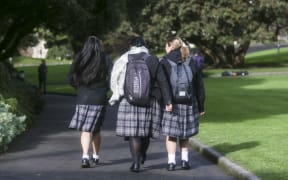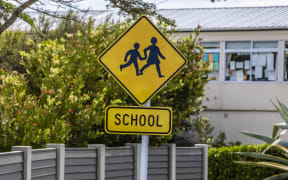
Photo: 123RF
A national survey shows support for students with mental health and wellbeing problems has become the number one issue for secondary schools.
The New Zealand Council for Educational Research three-yearly survey last year asked secondary principals to select issues that applied to their school from a list.
"In 2022, providing support for vulnerable students was identified by a higher proportion of principals than it was in 2018 (80 percent, compared with 66 percent). It is now the top issue facing schools," the report said.
Nearly all principals said their school had well-embedded plans for identifying and helping students with mental health or social problems.
The next most-frequently cited issues were too much being asked of schools (76 percent), hiring quality teachers (71 percent) and difficulty keeping up with NCEA and curriculum changes (71 percent).
- Read the full report: National Survey of Secondary Schools 2022 (55p)
The survey also indicated secondary principals' work was becoming increasingly difficult. Just 9 percent of the 154 respondents believed their workload was manageable, down from 22 percent in 2018, 36 percent in 2015 and 45 percent in 2012.
"Since 2012 we've seen this steady drop in the proportion of principals who tell us that their workload is manageable," senior researcher Mohamed Alansari told RNZ.
"At the same time we're also seeing that the morale is going down. This year when we asked principals to tell us about their morale, 66 percent told us that it's good or very good, that's a drop from 80 to 86 percent in 2012 and in 2009, so we're seeing steady and worrying drops in how principals view their work,"
Alansari said most principals said they felt optimistic and well-supported.
"But only about half of those principals said they've got a good idea of upcoming policy changes and initiatives that could impact their work and we expected that to be a bit higher."
Alansari said more than 80 percent of principals indicated good support for Māori students, but for Pacific students the figure was around 50 percent.
The report showed more principals supported new NCEA literacy and numeracy tests (44 percent) than opposed them (30 percent), but general support for changes to the qualification was low.
"Overall, principals reported feeling optimistic and supported by good systems and committed staff (72 percent to 88 percent), but only 55 percent had a clear idea of upcoming initiatives or policy changes that impact how they work," the survey report said.
"There was low support for National Certificates of Educational Achievement (NCEA) changes and the review of achievement standards (26 percent to 44 percent), and schools are in the early stages of implementing Aotearoa New Zealand histories in their local curriculum: most are either getting started (28 percent) or developing their understandings and relationships (42 percent)."
Nearly all principals said they worked more than 50 hours a week and half said they worked more than 60 hours.
Most principals said their schools had plans to develop and encourage positive relationships including addressing racism and teaching emotional skills.
However, 19 percent said their school did not actively teach emotional skills in everyday classes, and 11 percent said their school did not explore the healthy use of digital devices and social media.
Eighty-four percent said their school actively supported LGBTQIA+ students and 80 percent said they supported gender-transitioning students.
The report said about half of principals commented positively on kāhui ako, the groupings of schools that work together, but wanted improvements to the scheme.
Schools have become 'first port of call for troubles' - education leader
The Covid-19 pandemic was certainly one reason for the increase in mental health and wellbeing needs schools had reported, the chair of the Secondary Principals' Council said.
Kate Gainsford told Morning Report schools became the hubs of their communities during that time.
"They often became the first port of call for all sorts of worries, and that's certainly played out since then as well."
She said the increase in mental health and wellbeing requirements was concerning, but understandable.
"I think it's because we have the relationships with the young people and their whānau that we become that first port of call for troubles as they emerge."
But schools needed more support in order to manage the additional need, she said.
"We can manage [to support students] if we have the follow-up and the right backup, but what we're finding in schools is that we're frequently the backup service as well."






